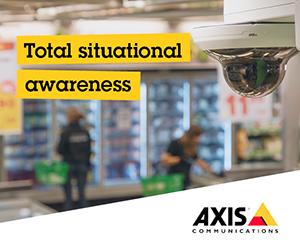ORIS Forums
Fashion Victims Fight Back
Retailers support primary authority status as second survey highlights increase in technology to combat fashion crime.
A group of influential fashion retailers is supporting two major Police initiatives – both of which have the potential to reduce the volume and impact of business crime.
The Retail Loss Prevention Fashion Forum is supporting the National Police Chiefs Council (NPCC) objective to achieve a consistent standard of operation for town centre business crime reduction partnerships.
Secondly, the Forum, which comprises some of the biggest brands on the high street, is backing the ‘primary authority’ pilot scheme established by the NPCC and the Police College.
With regard to the first initiative, many business crime partnerships fall under the control of the National Association of Business Crime Partnerships (NABCP) which is pushing through a minimum standard of operation, to give retailers peace of mind that the schemes are effective and fit for purpose. There are a number of schemes and radio initiatives that still operate outside the auspices of the NABCP, and the Retail Loss Prevention Fashion Forum members and the NPCC have jointly agreed to withdraw funding and support for those schemes that do not meet the agreed standards.
In terms of primary authorities, the status enables a retailer’s nearest force to review their loss prevention policies and procedures and then disseminate them across the other 42 forces so that a more consistent approach is adopted to policing matters, in much the same way that that already exists with respect to health and safety and fire regulations.
The support for these national initiatives comes after a survey published by the Retail Loss Prevention Fashion Forum revealed that the sector is investing greater resources in technology as it continues to be more susceptible to theft.
The Forum, the longest established of the 10 ORIS Loss Prevention Forums that collectively generate a turnover of hundreds of billions of pounds, unveiled the findings of its second survey this week, two years after it took the initial decision to start measuring the impact of crime in its own sector.
Members including Aurora Fashions (Karen Millen), ebay, House of Fraser, Inditex (Zara), JD Sports, John Lewis, Marks & Spencer, Matalan, Mothercare, Michael Kors, Next, New Look, Peacocks, Primark, River Island and Superdry have seen an overall increase of 0.1 per cent in shop crime - equating to millions of pounds of loss. They have also seen an increase in threats and violence against staff and a rise in detection and apprehension of thieves.
In addition, fashion retailers have had to tackle a wide range of challenges from industrial scale organised shop theft gangs travelling the country to steal designer brands, to high level cyber criminals. At the same time they are confronted by 43 Police forces that have reduced their response to business crime by an average of 20 per cent in line with Government deficit reductions.
Figures for retail losses as a whole vary according to the different industry-wide surveys, but the Office for National Statistics recorded a six per cent increase in shoplifting year on year and, according to the BRC, crime cost retail £603 million last year, a figure which is 18 per cent higher than the previous year. Shop theft, internal theft and increases in cyber-crime were behind the hike.
However, according to figures independently verified by CAP Index, the fashion sector continues to reveal its own ‘micro-climate’ of criminal activity with a higher than average loss from staff theft – 37.8 per cent compared to 31.5 per cent which was down to customer dishonesty.
Fashion stock loss is up by 0.1 per cent on the previous year, which, combined with the reduced Police response means that stores have had to become vigilant or are deploying greater use of technology to detect crime.
Half of the survey described the Police response as ‘adequate’ while more than 40 per cent said it was in need of improvement in light of priority changes and cuts in Police resources as part of Government’s so-called ‘austerity’ agenda.
Fashion Forum chair Colin Culleton, Group Loss Prevention Manager at Next Plc, said: “The fashion industry clearly has its own unique challenges but through collaboration and identification of hot spots, we are seeing improvements in a number of areas as reflected in the survey results. Organised retail crime and staff dishonesty contribute significantly to our losses and we will continue to look at how we can jointly tackle these issues and benefit from the benchmarking opportunities the Fashion Forum provides.”
“At the moment we have some really good relationships with local Police, but also some forces that have drawn up their own, arbitrary cost-driven approach where they will only respond to store crime at a certain price threshold or if the offender is known and prolific. This simply means that we mask the issue through under-reporting and the end result is a quid pro quo: less store theft is reported and the Home Office further reduces Police resources in line with the crime statistics.
We warmly welcome the commitment made by the NPCC to achieve consistency in the structure and performance of BCRP’s and the encouragement given to retailers to adopt primary authority status with their local force.”
Fashion Forum vice chair Tim Edwards, added: “The fashion industry does have its own micro-climate which makes the products more attractive to thieves whether it is the industrial scale organised gangs targeting us for designer products up and down the country, or our own staff abusing their positions of trust. Primary Authority status would enable us to have an even bigger impact and, through membership of the National Business Crime Solution, retailers and Police can accurately measure the levels of travelling crime to provide a stronger national organised picture of store crime.”
One of the reasons for the survey’s finding of reduced stock loss may lie in the increased use of technology with 80 per cent of those surveyed using some form of CCTV analytics and 60 per cent either using or trialling RFID solutions to monitor total loss. Half of the survey sample were using some form of data mining and a third of those polled were also looking at facial recognition technology. One hundred per cent of the retailers surveyed had increased their staff engagement procedures.
“We are seeing trends towards more cyber-crime and less casual, but more skilled thieves at a time when Police response to store crime has been under increasing pressure. As a Forum, we have regular dialogue with Police forces and make the point that whatever local initiatives may be in place, that we will always support full reporting of crime in order that we can see the full extent of crime impacting our stores,” added Culleton.
Louise Henham, Managing Director of ORIS Forums, added: “There were some positive messages to be seen in the second survey, but there is no room for complacency. While more businesses are using technology and investing in cross-border data sharing initiatives such as the National Business Crime Solution, the Fashion Forum wants to have clear lines of reporting and engagement with all of the Police forces and the City of London Police which is the centre for fraud and cyber reporting, to make sure that business crime remains a resource priority, irrespective of Police budget cuts.
This is because the Forums have been able to establish that shop theft is often an entry level crime which leads to more serious organised activity and has been linked to people and drug trafficking and even terrorism.”
For more information on ORIS Forums, visit www.orisforums.co.uk






